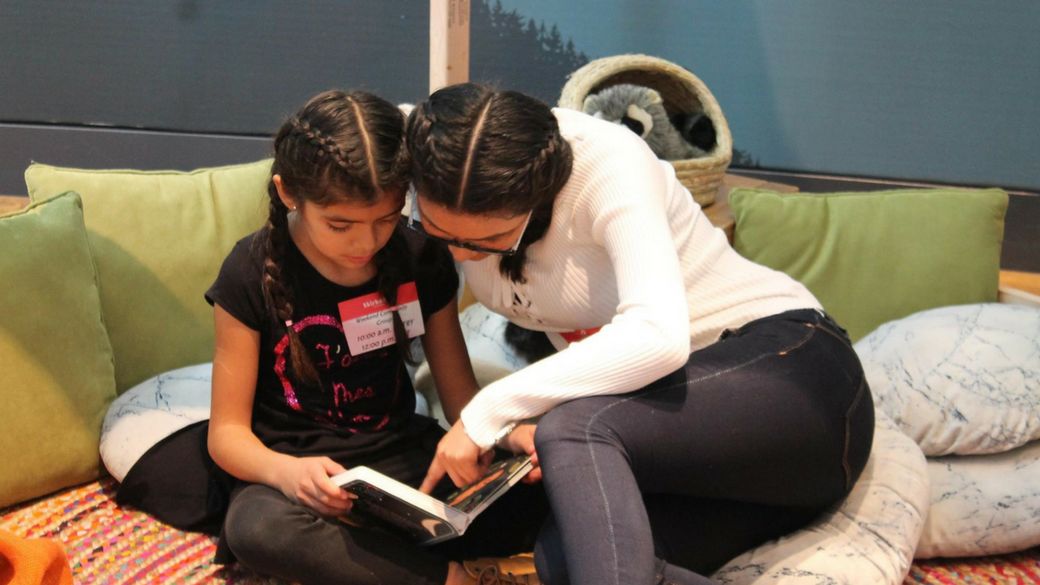Ministry with: San Fernando Valley Refugee Children Center
Obstacles for refugees do not subside once resettled, especially for unaccompanied minors. After fleeing their homes in search of protection from violence, children face a unique set of challenges even once they’ve reached safety.

Acclimating to a foreign nation, speaking a different language, navigating the educational system, healing from trauma, and failing to be embraced by the community are only a few of the experiences that refugee children often encounter. Impairment of social, mental, and emotional development at a young age can contribute to economic hardship as children transition into adulthood.
Faith communities can provide opportunities for unaccompanied minors to overcome difficult circumstances and live into the possibilities that God envisions for all people. We spoke with the Rev. Fred Morris with the San Fernando Valley Refugee Children Center to learn more.
Tell us about the ministry.
In July 2015, the California-Pacific Annual Conference decided to open four Welcome Centers to provide aid and comfort to unaccompanied minors fleeing gang violence in El Salvador, Guatemala and Honduras. We started the San Fernando Valley Refugee Children Center, Inc. in light of the hostile reception of the children in some communities in California.
Our overarching goal is to reach out to these children and their families and offer our Center as a place of welcome and healing through partnerships with community organizations to provide for basic needs, services and resources.
We provide legal assistance for these children. Without an attorney, they have a 90 percent chance of being deported back to their home country, where they will face a strong probability of being murdered by the gang they fled in the first place.
We also provide them with medical care through the MediCal plan offered by the State of California. We also have a program of Group Trauma Therapy as well as individual therapy for those who want it.
What dream is the ministry pursuing?
We want the children to have a chance to build a new life here in the U.S. Hundreds of Los Angeles, California, gang members were deported to El Salvador, Guatemala and Honduras. They immediately formed gangs and made alliances with the narcotics traffickers from Colombia and then with the Mexican mafia. The U.S. Department of State says these three countries are dominated by organized crime.
If these children can gain refugee status, they can build a new life here in the United States as most of our ancestors did some generations back.
Is there a particular moment or memory that stands out for you?
Nearly all the people in our parish are living in terror. One man, 40 years old, who was brought to this country by his parents when he was 7 years old, was so terrorized by the threats of deportation that when the police came to register a minor traffic accident, he fled, hid in his car for about 15 minutes and then shot himself. He was totally terrified that he would be deported back to a country he did not know. He spoke little Spanish, as he had been here for nearly all his life. He had no relatives in Guatemala. His suicide left a widow and four fatherless children.
What have your neighbors (those utilizing services) taught you in doing this work?
I have learned more than I ever knew about the strength and resilience of people, especially children. Experiencing trauma after trauma, they continue to survive and struggle to move ahead. They are traumatized by gangs in their home country; another trauma when they are forced to leave family to come to the U.S. for refuge; the trauma of the horrendous trip across Mexico; and then to be treated as criminals when they arrive in the U.S. But they go on.
In May, we celebrated the graduation of 18 of our children from school: 15 from grade school and three from high school. One young woman from Guatemala graduated with honors from her high school, and she has been awarded a full scholarship at a California university after being in the U.S. for only 18 months.
What challenges have you encountered, and how have you adapted?
The biggest challenge we face is financial. Most of the pro bono legal agencies that aid refugees are maxed out because of the high numbers of people needing their services. Today we have to pay a “lo bono” private attorney to represent our children. We have negotiated a retainer of $1,500, the balance of the $3,700 fee is to be paid by the foster family at $100 per month.
We are holding a Fundraising Gala Aug. 11 at the Sportsmen’s Lodge in Los Angeles with a goal of $300,000 to underwrite the Center, permit us to add staff to meet the needs of these children, and pay the attorney fees.
How can people contact you if they are inspired by your ministry?
People can learn more and support the San Fernando Valley Refugee Children Center online at www.SFVRefugeeChildrenCenter.org.